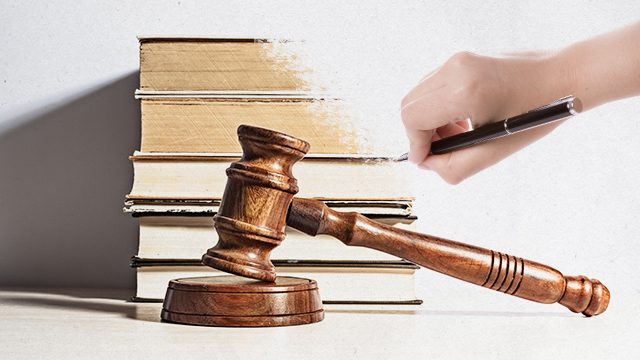SUMMARY
This is AI generated summarization, which may have errors. For context, always refer to the full article.

I read draft proposals on rewritten provisions of the Constitution, including a rewritten preamble that refers to the oddity of “a more perfect” society, in place of the quite sensible “just and humane society.” I must now ask: What, exactly, are we rewriting the Constitution for? I was under the impression that we wanted the Charter revised to provide for a federal configuration. And that, indeed, calls for a revision, not only an amendment, of the Constitution because legislative, executive, and judicial power have to be rethought, including the extent of the exercise of the great powers of government: eminent domain, police power, and taxation. But now that proposals surface that have very little to do with this avowed end, I must ask in earnest what it is we want to achieve by a revised Constitution?
One of the most delicate tasks of framers of a constitution is to calibrate the power of the branches of government, and again, merely invoking “democracy” provides no easy answer. A parliamentary system of which the executive is really part of the legislature – since the prime minister and his ministers sit in the legislative chamber – provides for the separation of the executive and legislative with a different configuration from what must be provided for under a presidential system. In this regard, I continue to have a very high regard for the 1987 Constitution. This is the reason that I go by the principle that what need not be rewritten should not be rewritten, otherwise we get curious, if not ridiculous proposals like “more perfect society”!
I agree that something has to be done about a domineering legislature – but not in respect to its checks on other branches of government. Rather, the rights of citizens and public officials summoned before its committees need more adequate protection far more specific than “the rights of persons appearing before it shall be respected,” or some grudging concession of similar tenor. In fact the abuse of investigations “in aid of legislation” is something that demands immediate redress.
As for the President’s emergency powers, I have argued in the past that restricting the capability of the President to respond to the demands of contingencies may make the prospect of abolishing the constitution or setting it aside alluring. In other words, the very possibility that the strictures of the 1987 Constitution put in place against a dictatorship may very well spawn one! But there must be checks, because the sparse provisions of the 1935 Constitution allowed President Ferdinand Marcos, or so he thought, to establish military commissions, have civilians tried by them, abolish the the legislature, exercise legislative power, and even usurp judicial functions by granting the authority to issue “arrest, search and seizure orders” to the martial law implementor. Once more, it is a question of careful calibration – and the answer cannot be purely legal.

The ambiguities – such as those relating to representation of Congress in the Judicial and Bar Council, the mode of congressional review of the declaration of martial law, the way Congress should vote when amending the Constitution – stemming from the commissioner’s “forgetfulness” that, in the end, they opted for a bicameral legislature rather than a unicameral congress – definitely need addressing: “in joint session,” “voting separately,” etc – all these need spelling out and clarifying.
But the State Policies and Principles are good; the Bill of Rights is very good. Provisions on the independent constitutional commissions, on education, health, and other concerns are good. Why rewrite them? As regards national patrimony, there has been the oft-repeated clamor to liberalize provisions on foreign ownership of land. Now, do we really like that, considering the propensity of Filipinos to sell their land, the eagerness of foreign investors to snap up choice parcels?
My unsolicited suggestion is simple: Those parts of the Constitution that have to do with setting in place a federal government should be rewritten first. Those sections that harbor vexatious ambiguities should be dealt with next, and finally, the provisions – or the gaps in provisions – that have spawned abuse and evil (my list has several items – including political dynasties, congressional investigations, constitutionalizing the Supreme Court doctrines on PDAF and DAP, the commander-in-chief provisions that disable rather than enable the President to cope with emergencies, the much-abused party-list system, etc) should receive their fair share of the drafters’ attention.
We should write for a clear purpose – and not merely because the chance to rewrite is open to us! – Rappler.com
Fr Ranhilio Callangan Aquino is vice president for administration and finance of Cagayan State University and dean of the Graduate School of Law, San Beda College.
Add a comment
How does this make you feel?
There are no comments yet. Add your comment to start the conversation.